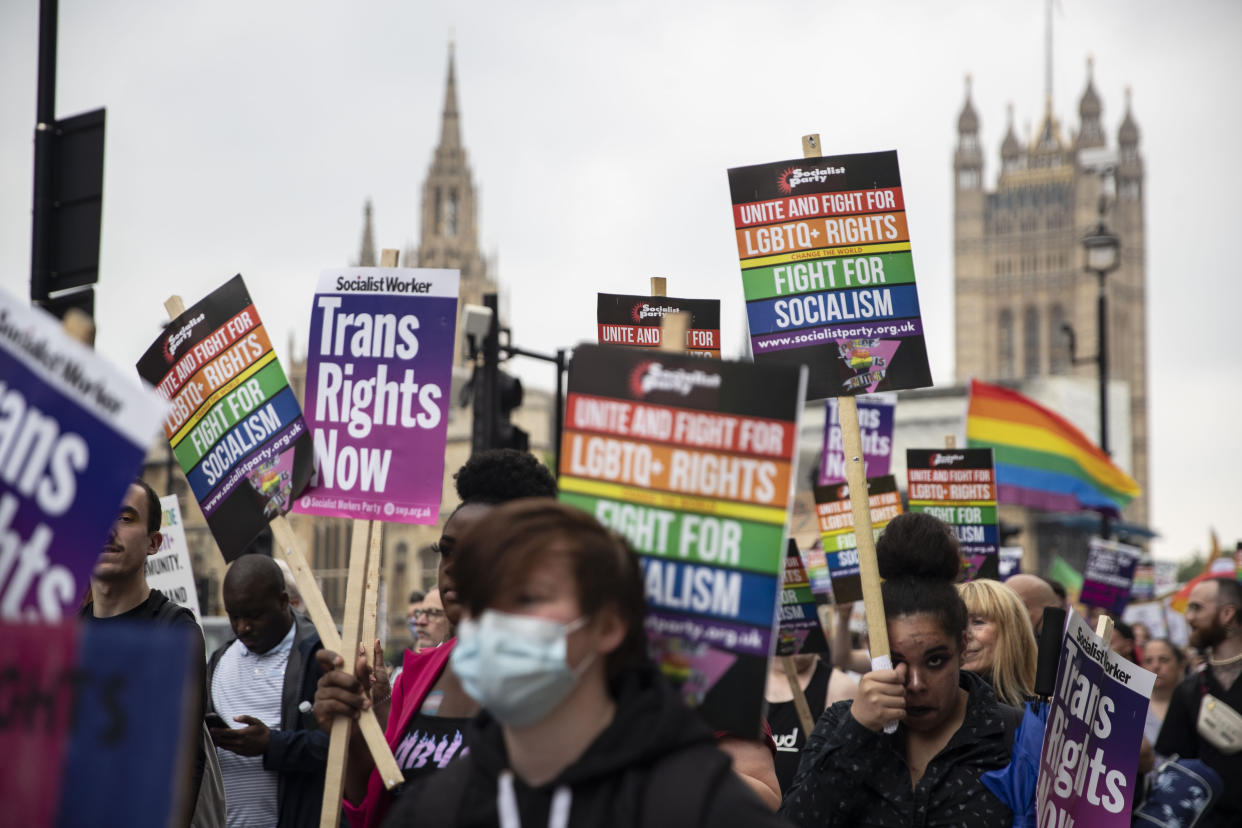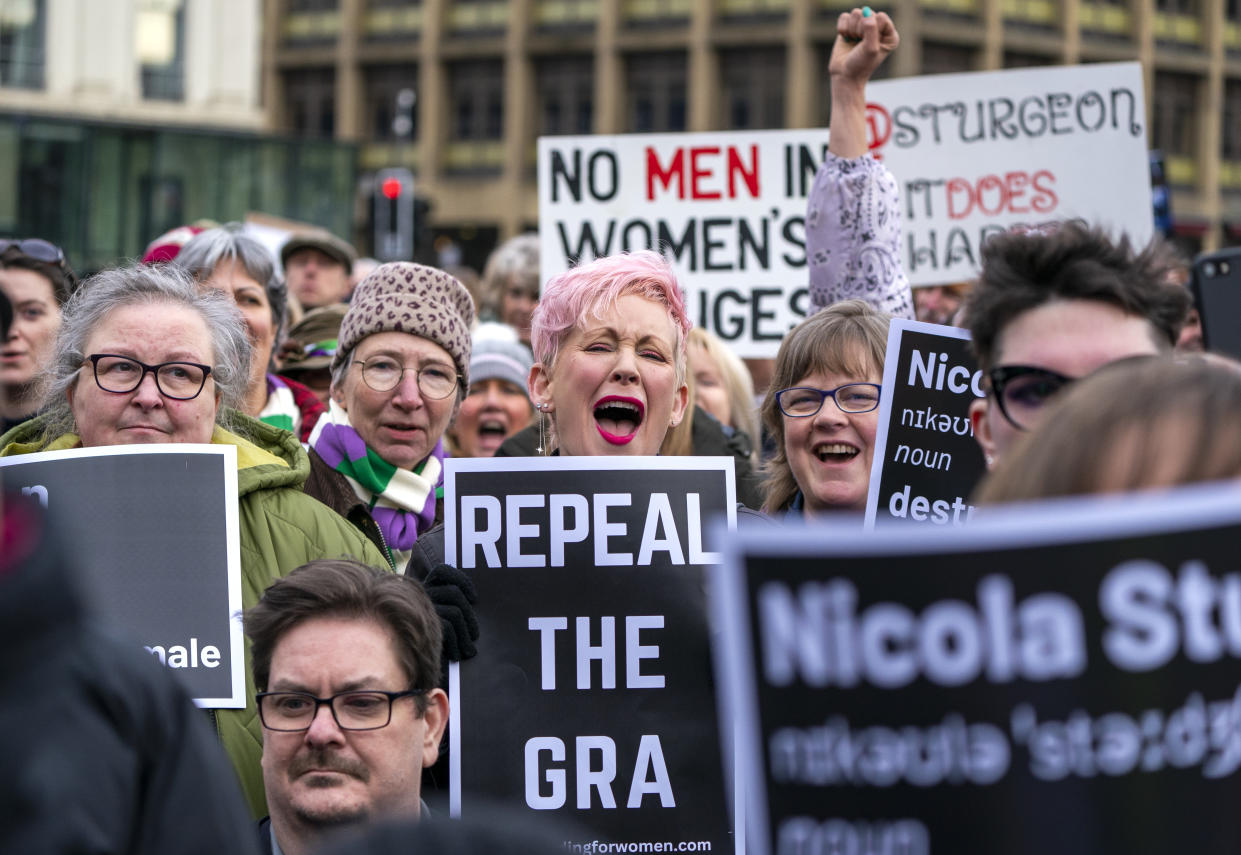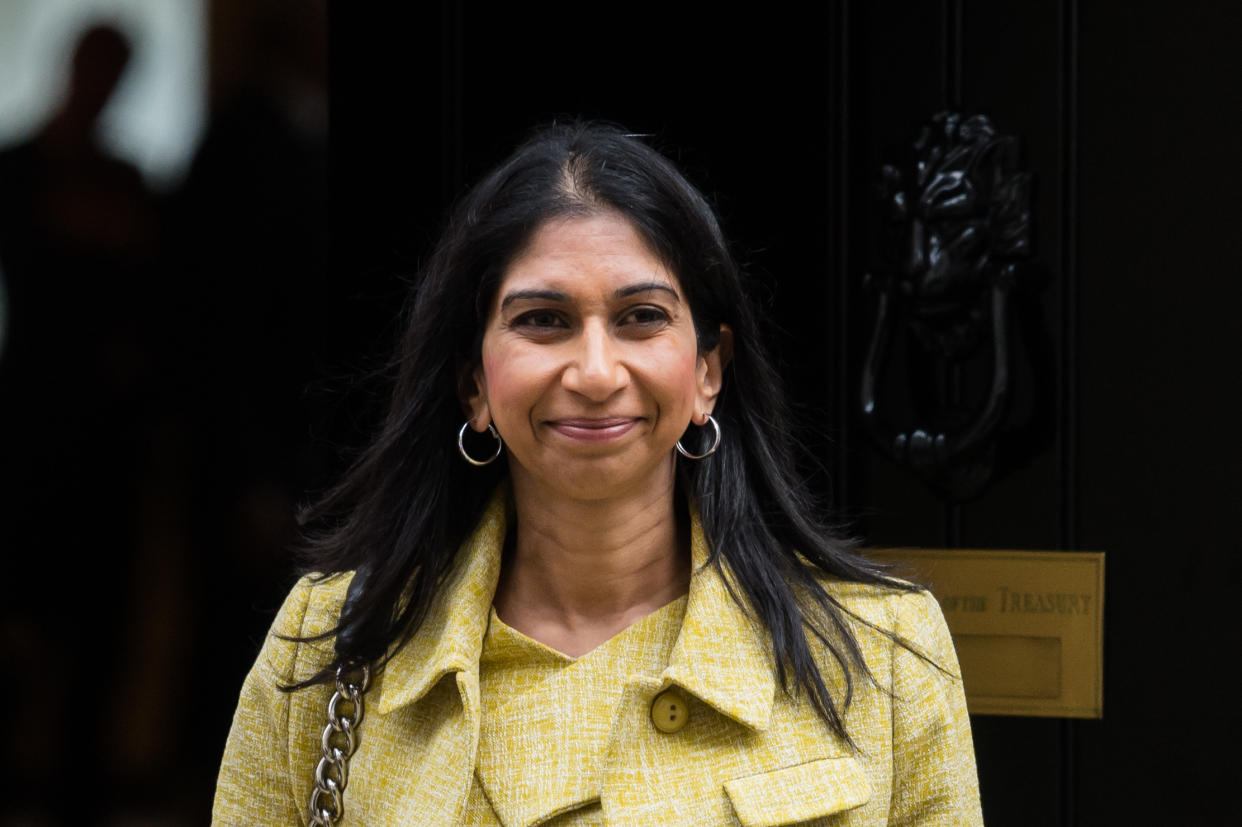‘Rampant surge’ in LGBT hate crimes blamed on politicians and media influencers

The United Nations has blamed politicians and news commentators for a “rampant surge” in LGBT hate crimes in the UK.
Victor Madrigal-Borloz, the UN’s independent expert on sexual orientation and gender identity, said in a report that “abusive rhetoric” from politicians has “trickled down” into wider society.
The report did not cite any specific examples of politicians being abusive.
However, it referenced the UK government’s decision to block controversial gender reforms in Scotland.

“Bolstered by strong protections of freedom of information in the UK, news media and social media are instruments for advocacy and visualising violations of the human rights of LGBT persons,” the report said.
“On the other hand, government authorities and civil society representatives in the UK informed [Madrigal-Borloz] that those media channels are also spreading anti-trans discourse and stereotypical imagery of LGBT persons as dangerous, often employing homophobic and transphobic rhetoric.
“Across the UK, civil society and public officials informed [Madrigal-Borloz] that such abusive rhetoric by politicians is trickling down and facilitating increasingly abusive and hateful speech in the social media, which in turn seems to be spurring rapid increases in the frequency of bias-motivated incidents of harassment, threats, and violence, including rampant surges in hate crimes.”
The conclusion of the report said LGBT people “carry out their lives and their work in the UK under the extreme pressure and hostility of a public debate which, today, questions rights that are directly connected with their dignity and, in some cases, their very existence”.
Home Office figures released in October last year showed sexual orientation hate crimes in England and Wales increased by 41% to 26,152 in the 12 months to March 2022.
Transgender identity hate crimes, meanwhile, rose by 56% to 4,355.
At the time the figures were released, the anti-abuse charity Galop made a similar accusation to Madrigal-Borloz, saying transphobic narratives in the media and by senior politicians have been allowed to grow without challenge and are translating into “violence against our community”.
Read more: Oxford students to be offered ‘welfare resources’ during Kathleen Stock talk
The Home Office said it was “uncertain to what degree the increase in police-recorded hate crime is a genuine rise or due to continued recording improvements and more victims having the confidence to report these crimes to the police”.
It added “hate crime is a scourge on communities across the country. It does not reflect the values of modern Britain.”
The gender identity debate has become increasingly polarising in the UK.
It has been encapsulated by the controversy surrounding a bill, passed by the Scottish Parliament, which would have made it easier for trans people in the country to obtain a gender recognition certificate by removing the requirement for a diagnosis of gender dysphoria, as well as dropping the required age and shortening the time required for the applicant to live in their acquired gender.
It had passed by 86 votes to 39 in December after being met with serious concerns across the political spectrum, with opponents claiming it could infringe on the rights and safety of women and girls.
On the other hand, those who backed the bill said it was a minor administrative change that would ease the lives of transgender people.
In an unprecedented constitutional move, the UK government blocked the bill - using Section 35 of the Scotland Act 1998 - in January over concerns about the “adverse impact on the operation of Great Britain-wide equalities legislation”.
The devolved Scottish government is taking the Westminster government to court over the veto, with the UK confirming this month it will contest the action.

Another recent row saw a police force apologise after home secretary Suella Braverman accused it of “playing identity politics and denying biology” around sexual offences committed by a transgender woman years before transitioning.
Sally Ann Dixon had been jailed for 20 years in September last year after being convicted of 30 indecent assaults of five girls and two boys between 1989 and 1996, when Dixon was known as John Stephen Dixon.
The 58-year-old later transitioned to female in 2004, Sussex Police said. Some people on Twitter had objected to the force referring to Dixon in the headline of its press release as a “woman convicted of historic offences against children in Sussex”.
Sussex Police had insisted it would not “tolerate any hateful comments” about gender identity “regardless of crimes committed” and advised a Twitter user, who said she was exercising her gender critical views, to familiarise herself with what is regarded as hate on its website.
Some hours later the force said a comment made on its official Twitter account had been “inconsistent with our usual style of engagement”, and that it had since been deleted.
Braverman had said the force should “focus on catching criminals not policing pronouns”.


